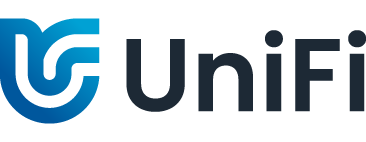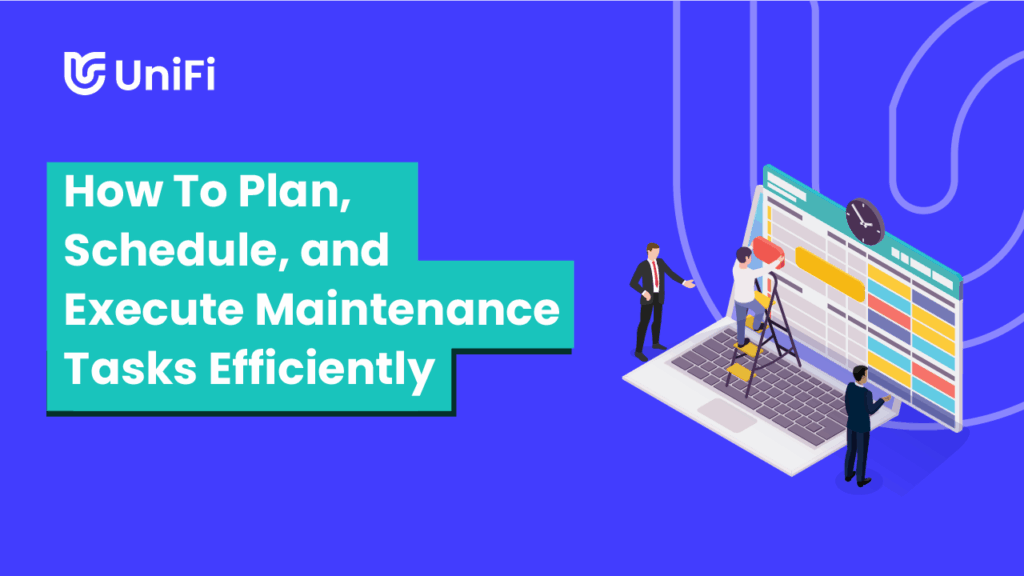Maintaining assets is vital for any organisation to keep assets in peak condition, ensuring smooth operations and preventing costly downtime.
However, efficiently managing maintenance tasks can be complex without a structured approach.
In this comprehensive guide, we’ll walk you through the process of planning, scheduling, and executing asset maintenance tasks effectively, leveraging the power of UniFi Enterprise Asset Management (EAM) platform.
The Importance of Efficient Maintenance
Effective maintenance management is essential for optimising asset performance, minimising downtime, and reducing maintenance costs.
By planning, scheduling, and executing maintenance tasks efficiently, organisations can:
- Ensure assets are in peak condition
- Improve operational efficiency
- Enhance safety and compliance
- Extend asset lifespan
- Reduce unexpected downtime and associated costs
Steps to Efficient Maintenance Task Management
Step 1: Assess Asset Maintenance Needs
Before tackling maintenance tasks, it’s crucial to assess your assets’ maintenance needs.
Identify critical assets, their maintenance requirements, and frequency.
The Automated Asset Monitoring app in UniFi provides powerful dashboards and reports for keeping tabs on asset performance, helping you see which assets require maintenance.
UniFi EAM’s customisable workflows allow you to tailor maintenance schedules based on asset criticality and historical data, ensuring proactive maintenance planning.
Step 2: Plan Maintenance Activities
With UniFi EAM, planning maintenance activities becomes streamlined.
Utilise the platform’s intuitive interface to create and manage planned maintenance tasks effortlessly.
Define task details, including scope, resources required, and estimated duration.
UniFi’s dynamic dashboards provide real-time visibility into maintenance schedules, enabling you to allocate resources efficiently.
Step 3: Schedule Maintenance Tasks
Once maintenance activities are planned, it’s time to schedule them for execution.
UniFi EAM’s Work Management App Group empowers you to schedule tasks with full automation, ensuring optimal resource utilisation and minimising downtime.
Assign tasks to the right personnel or teams using automated task assignments and set priorities to address critical maintenance needs promptly.
Step 4: Execute Maintenance Tasks
Executing maintenance tasks efficiently is essential to keep assets in peak condition.
UniFi EAM’s user-friendly interface and mobile accessibility enable field technicians to access task details, update progress, and report issues in real time.
With UniFi’s integrated platform, all data is synchronised across apps, providing a complete view of maintenance operations.
Step 5: Monitor and Analyse Performance
After executing maintenance tasks, it’s crucial to monitor performance and analyse outcomes.
UniFi EAM’s comprehensive reporting and analytics capabilities allow you to track key performance indicators (KPIs), such as asset downtime, maintenance costs, and compliance metrics.
You can leverage UniFi’s business intelligence feature to transform complex data into actionable insights, enabling data-driven decision-making.
Step 6: Continuous Improvement
Continuous improvement is at the heart of effective asset maintenance.
UniFi EAM’s customisable workflows and dynamic dashboards facilitate continuous refinement of maintenance processes.
You’ll be able to analyse performance data, identify areas for improvement, and implement corrective actions to enhance asset reliability and performance over time.
Leveraging UniFi EAM for Efficient Asset Maintenance
UniFi EAM provides organisations with a comprehensive solution for planning, scheduling, and executing asset maintenance tasks.
By leveraging UniFi’s powerful features, including customisable workflows, dynamic dashboards, and real-time integration, organisations can streamline maintenance operations, reduce downtime, and optimise asset performance.
Effective asset maintenance requires careful planning, proactive scheduling, and efficient execution.
With UniFi EAM, organisations can achieve these goals seamlessly, ensuring that their assets remain in top shape while driving operational efficiency and cost savings.


